This article presents the 3rd Collection of the Musée de Lyon.
This is an introduction to contemporary art and content that could not be introduced previously.
Louis Janmot (1814-1892)
A Lyonist, Janmot was a French painter and poet.
Many of the works are strongly influenced by Catholicism.
Le Poème de l’âme (The Poem of the Soul), which we present here, was exhibited at the Universal Exposition of 1855.
Unfortunately, it was not well received at the time.
In all, the work, comprising 18 oil paintings and 16 drawings, depicts the transmigration of the soul.
Please note that only oil paintings will be presented at this time.
Created 1835-55.
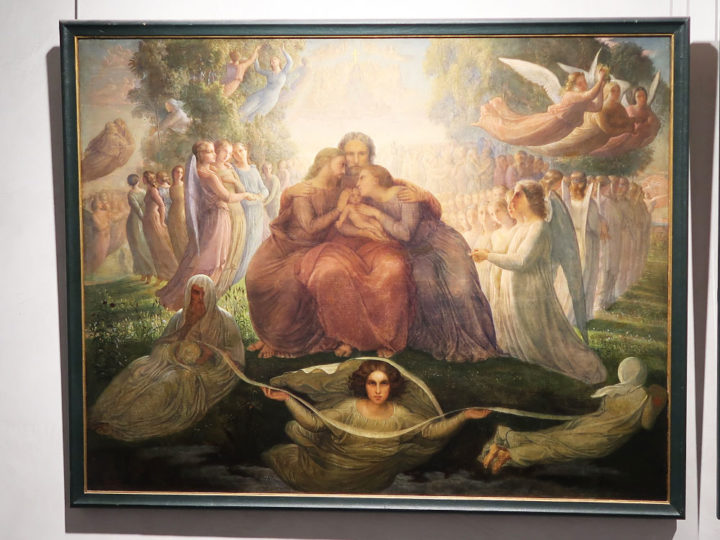
1 Génération divine
It represents the birth of the soul.
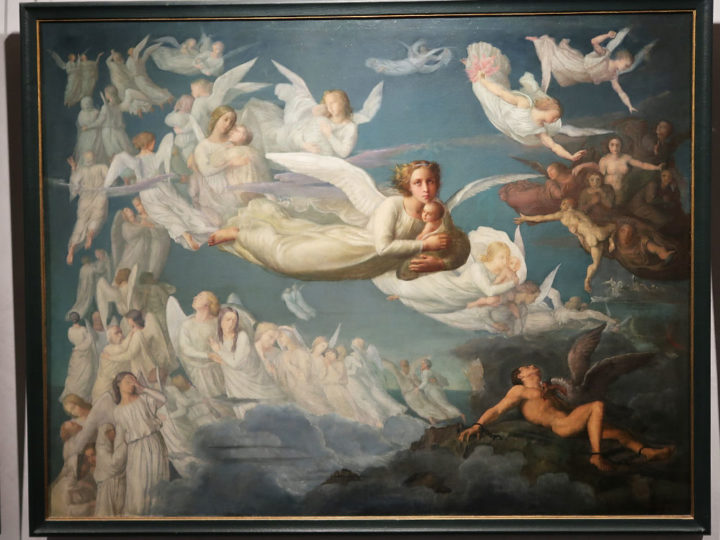
2 Le Passage des âmes
The soul is guided from heaven to earth by guardian angels.
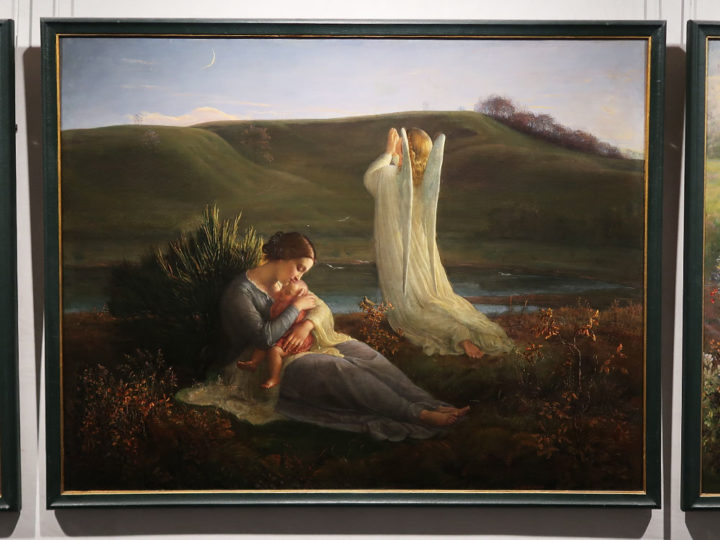
3 L’Ange et la mère
The mother is holding her young child (reincarnated soul).
A guardian angel prays to heaven.
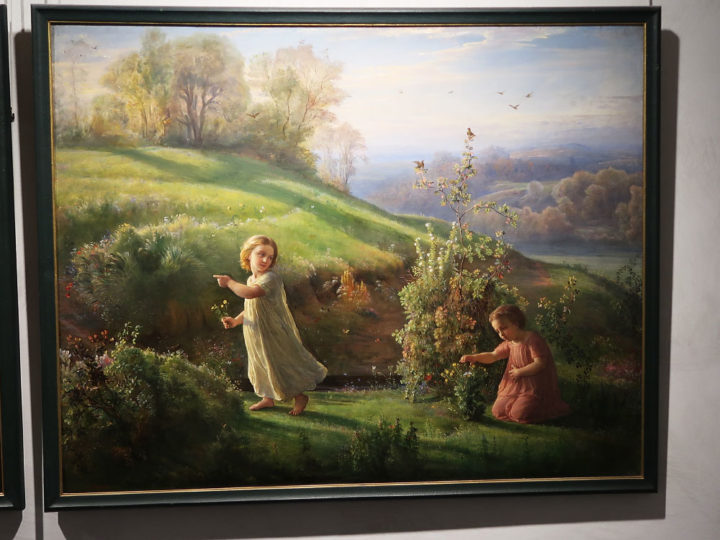
4 Le Printemps
Boys wear pink and girls wear white.
It depicts the innocence of childhood.
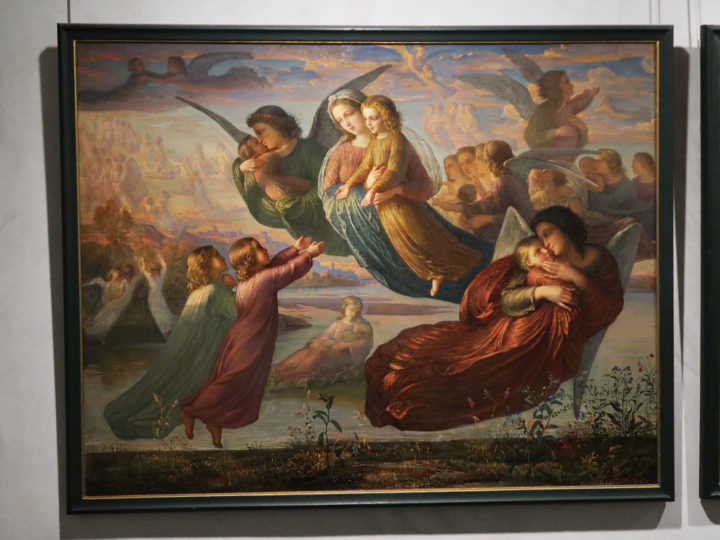
5 Souvenir du ciel
Mulatière in Lyon is depicted in the background.
The connection between God and man is expressed through two children.
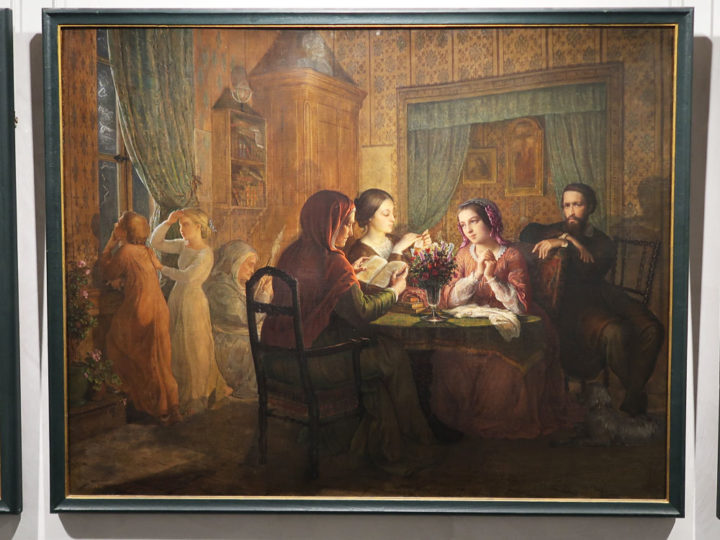
6 Le Toit paternel
Two children watch the lightning bolt by the window.
The grandmother reads poetry and the two women sew.
In the back, an old woman and a Janmot, aged about 30, are sitting.
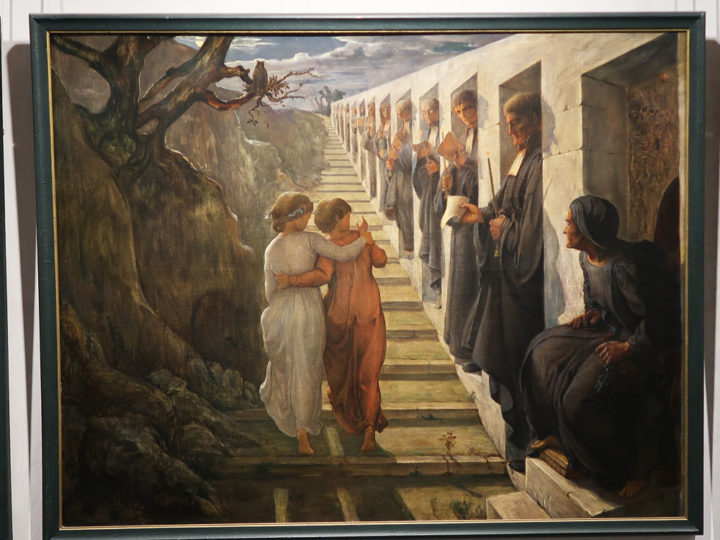
7 Le Mauvais Sentier
It depicts a university corridor lined with teachers who, through false science, have to climb a staircase with no way out, with deceptive ideals and faith.
It may express the views of Janmot, a Catholic, on society at the time.
It is one that is difficult to interpret due to its historical background.
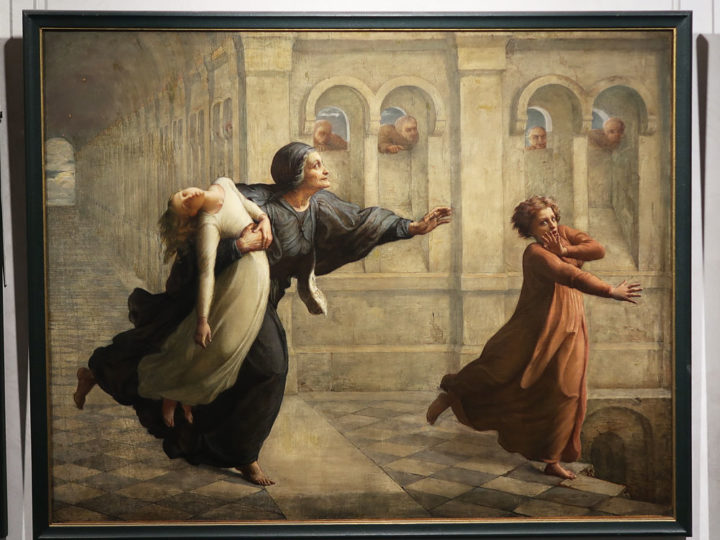
8 Cauchemar
An old woman (death) is trying to catch the girl and also the boy.
The boy’s feet are crumbling as he flees.
It depicts how humans are trying to corrupt innocent young souls.
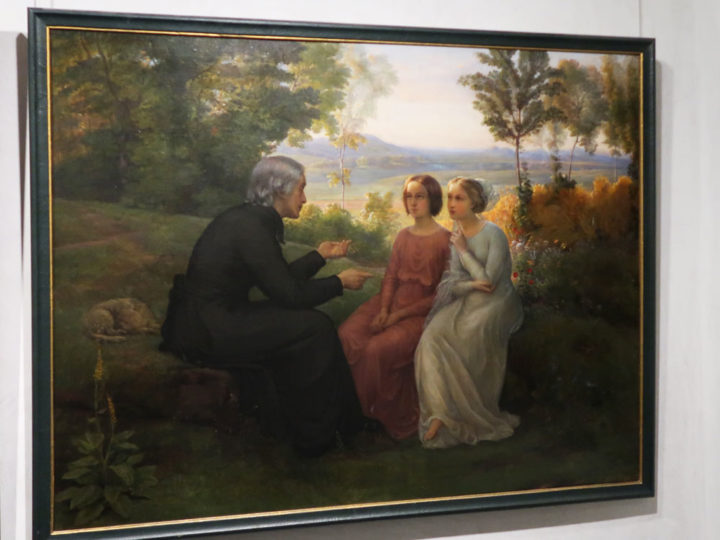
9 Le Grain de blé
This is a scene where a priest is preaching the faith to two young men.
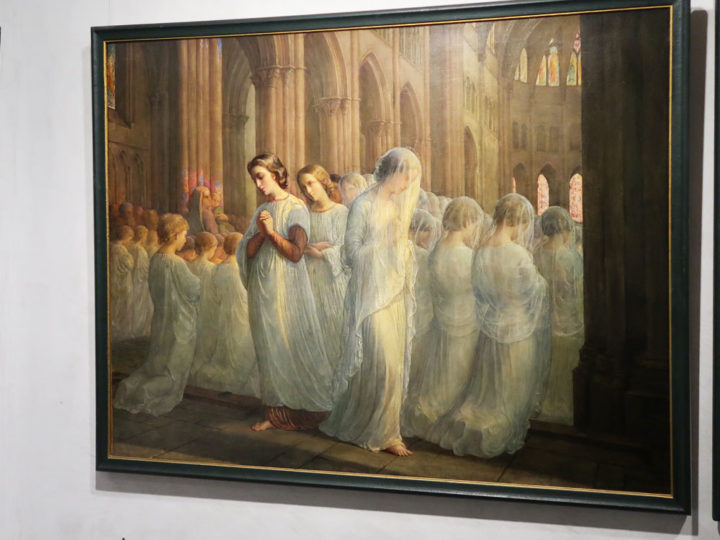
10 Première Communion
This is the scene of the first communion service in the Great Church of Saint-Jean.
Communion, also known as Holy Communion, is a ritual derived from Jesus’ Last Supper.
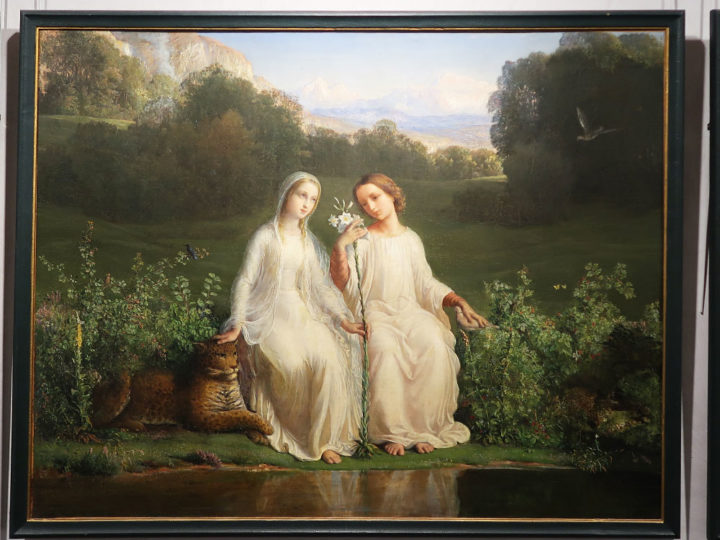
11 Virginitas
Happiness is pure of heart and the invisible is revealed to them.
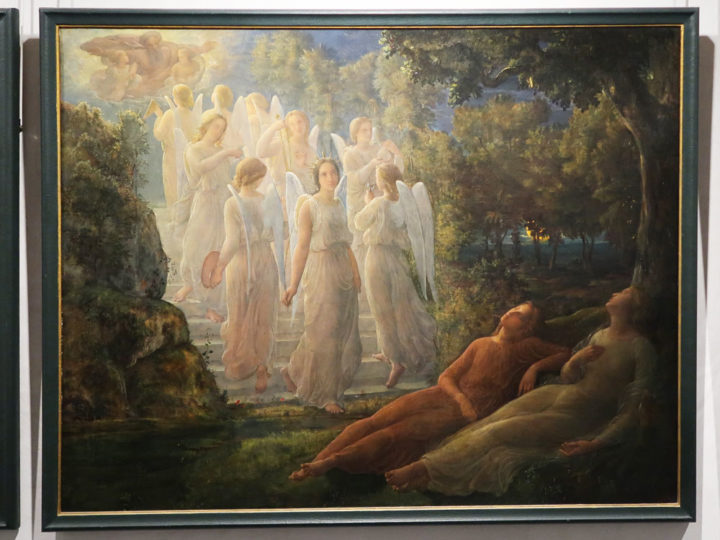
12 L’Échelle d’or
As the couple sleep in the forest, nine angels appear on the stairs leading to God.
Each has a symbol associated with the arts and therefore pays homage to beauty and art.
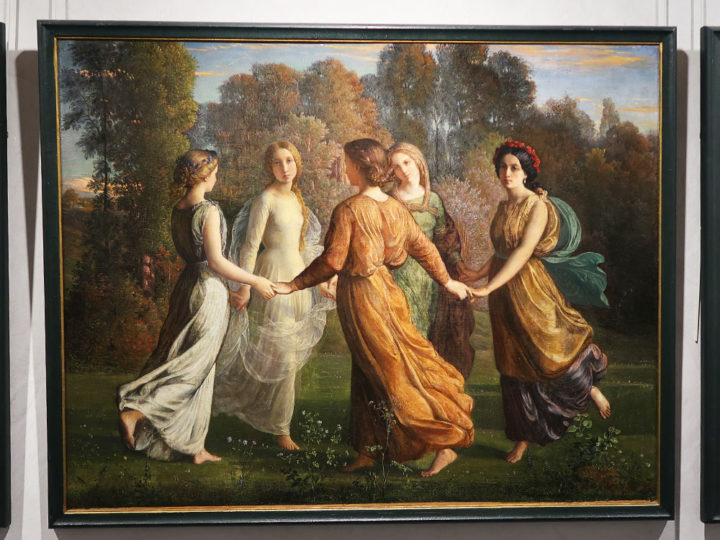
13 Rayons de soleil
It expresses the fragility of earthly happiness.
A dark-haired woman is trying to seduce you.
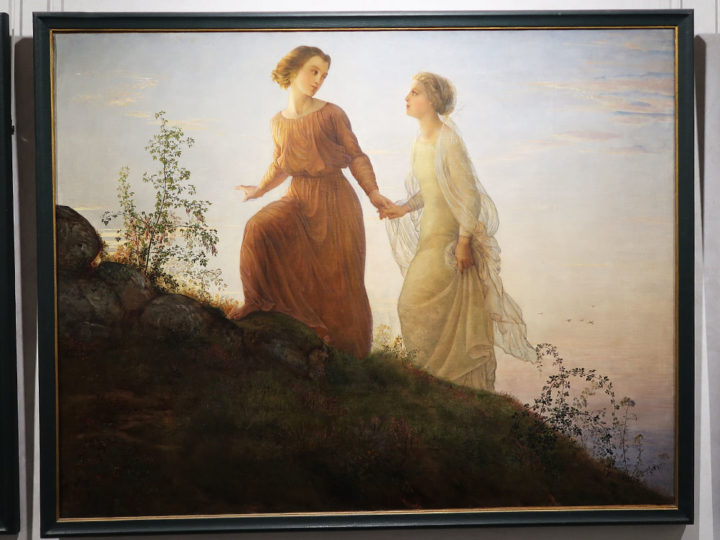
14 Sur la Montagne
Two people who have gone through all the stages of love living in purity represent a stage in their spiritual journey.
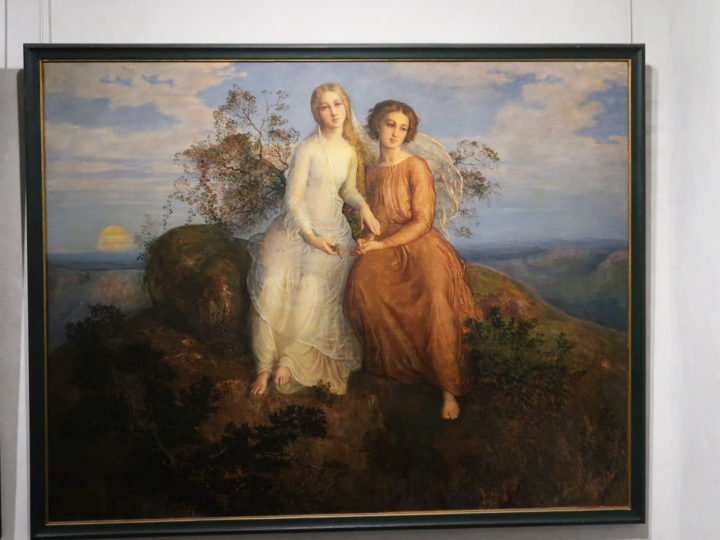
15 Un Soir
Represents a problem of transition from childhood to adulthood.
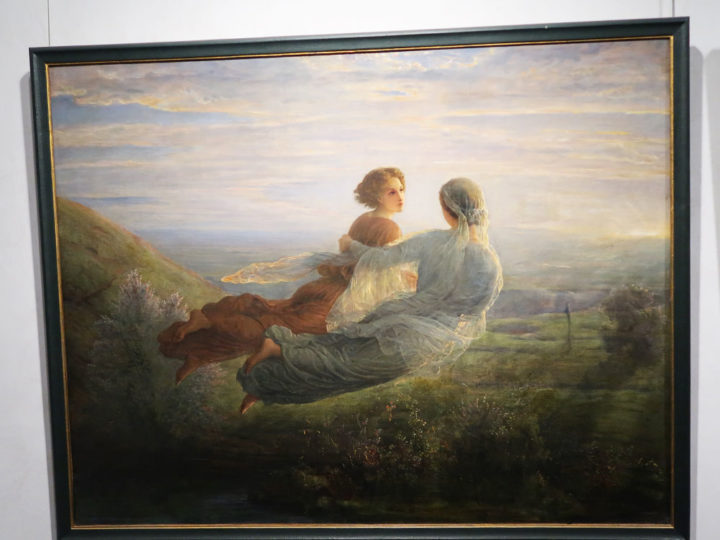
16 Le Vol de l’âme
They left the mountain tops and left the real world behind.
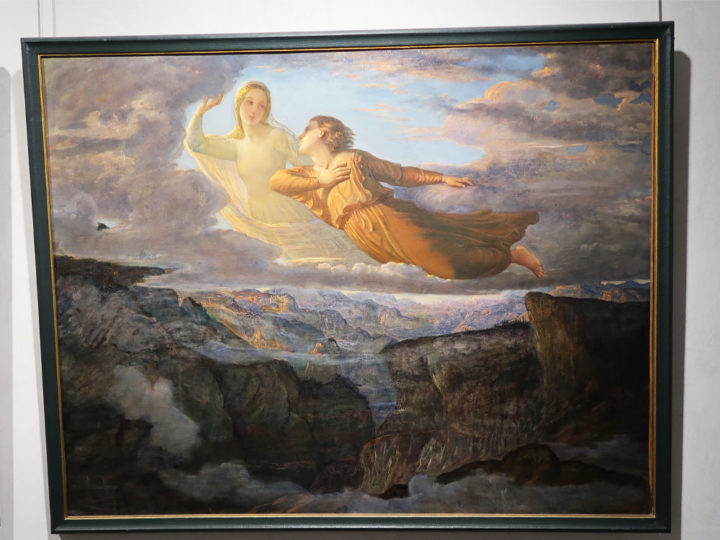
17 L’Idéal
Their rapport reaches its highest point and the girl rises even higher.
However, He is anxious in the midst of all this.
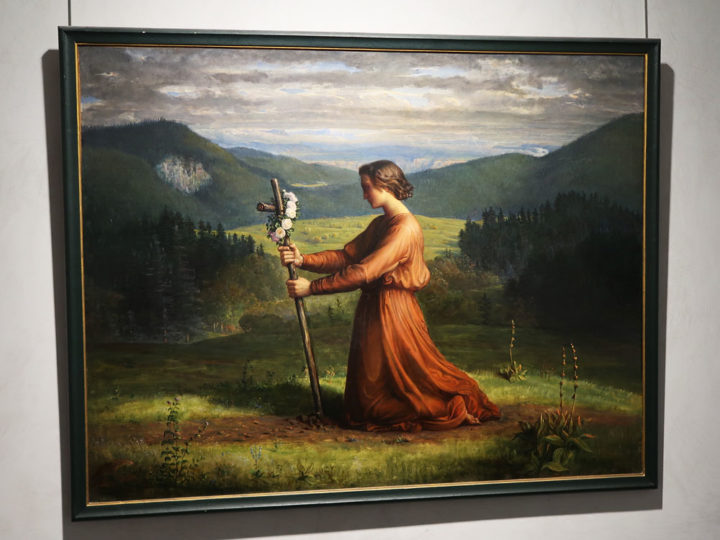
18 Réalité
He is kneeling at the cross at the time of his first communion, indicating that he has lost her.
source:wikipedia fr Le Poème de l’âme
Pierre Puvis de Chavannes (1824-1898)
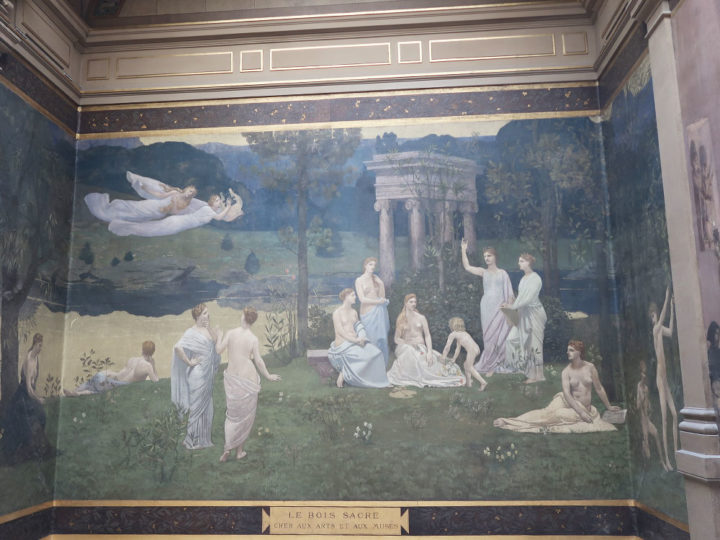
Le Bois sacré cher aux arts et aux muses (1884)
The work was commissioned by the city of Lyon in the 1880s.
Painted on the staircase in the south-east corner, it is a monumental work for the Musée de Lyon.
It depicts a sacred and artistic landscape.
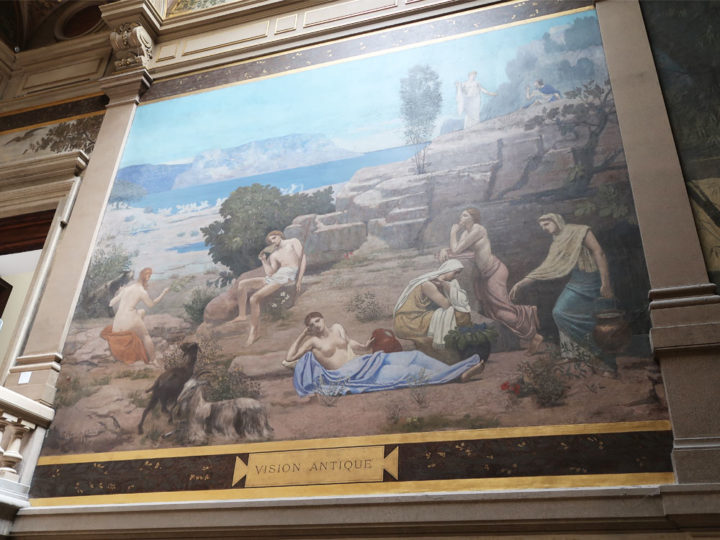
Vision antique
The drawing on the left is inspired by ancient Greece.
Not pictured, but on the right side is a medieval or early Renaissance Italian landscape.
Alexej von Jawlensky (1864-1941)
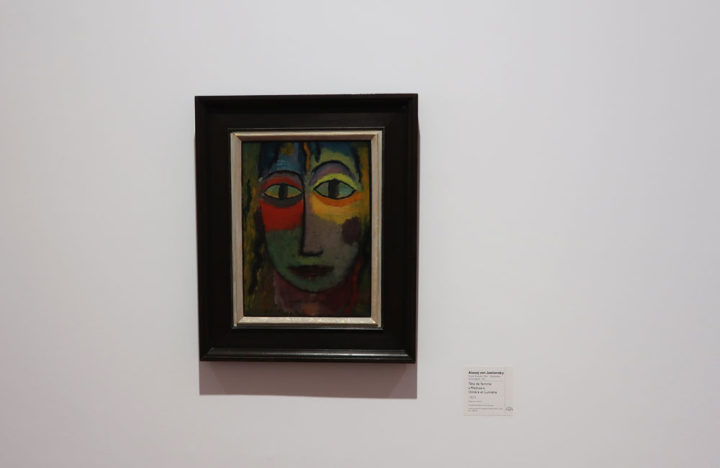
Tête de femme “Méduse”, Lumière et Ombre (1923)
Russian-German painter.
Fernand Léger (1881-1955)
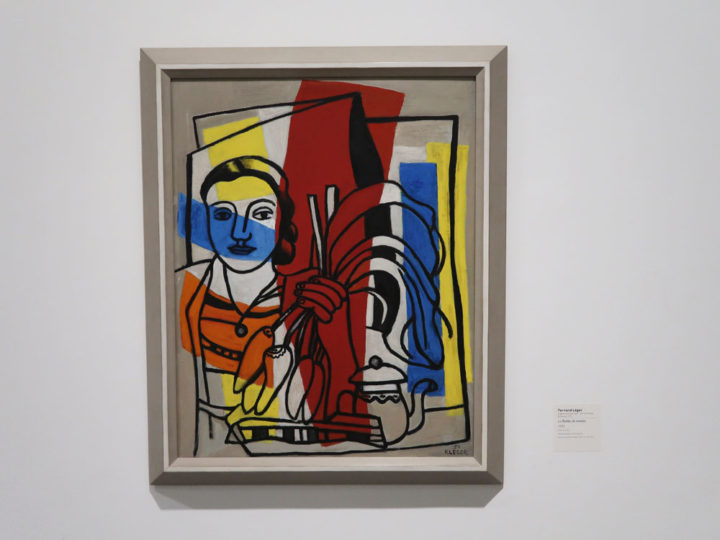
In his early years, the painter belonged to Cupidism.
Alfréd Réth (1884-1966)
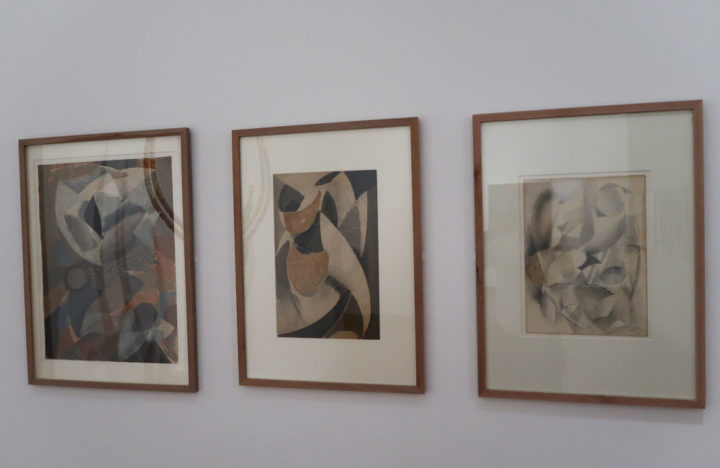
Sans titre (1947) Colombes (1950) Composition (1947)
Hungarian-born painter and member of École de Paris.
Alberto Magnelli (1888-1971)
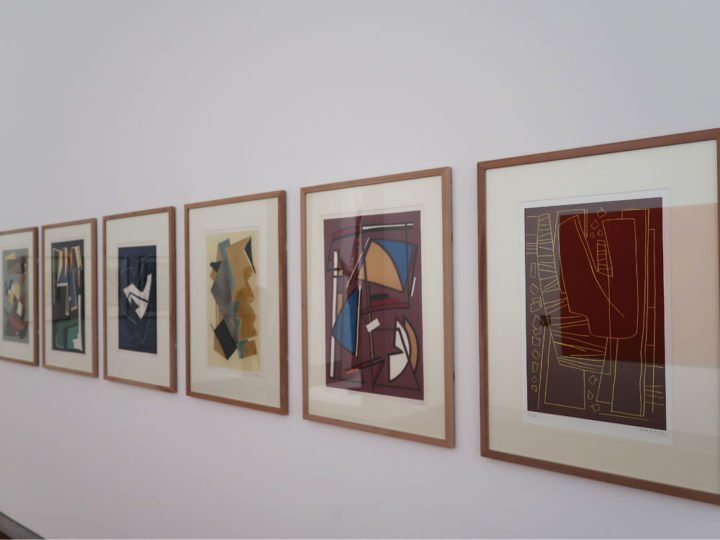
l’album de la ferrage (1970)
Italian contemporary painter and central figure in the Concrete Art (geometric abstraction) movement.
Serge Poliakoff (1900-1969)
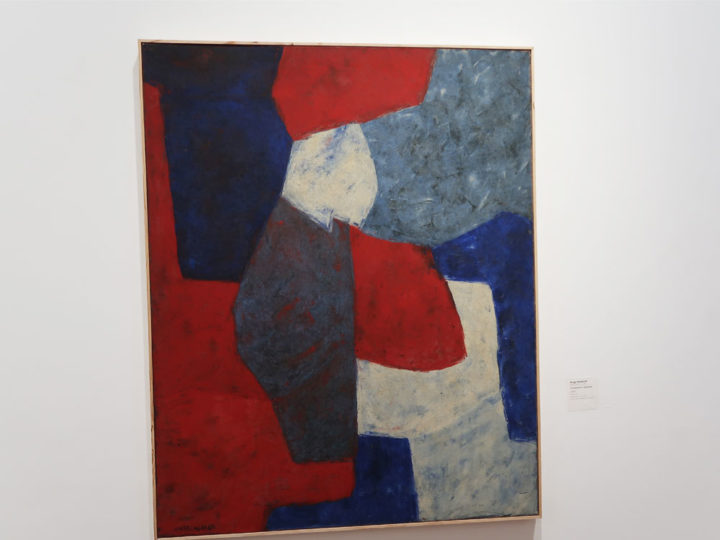
Composition abstraite (1964)
He is a Russian painter belonging to the École de Paris.
René Duvillier (1919-2002)
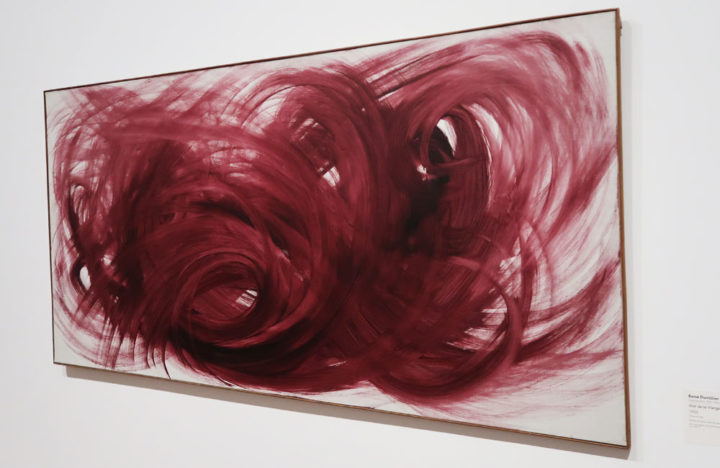
Le viol de la vierge (1959)
He is a French painter belonging to the École de Paris.
Georges Adilon (1928-2009)
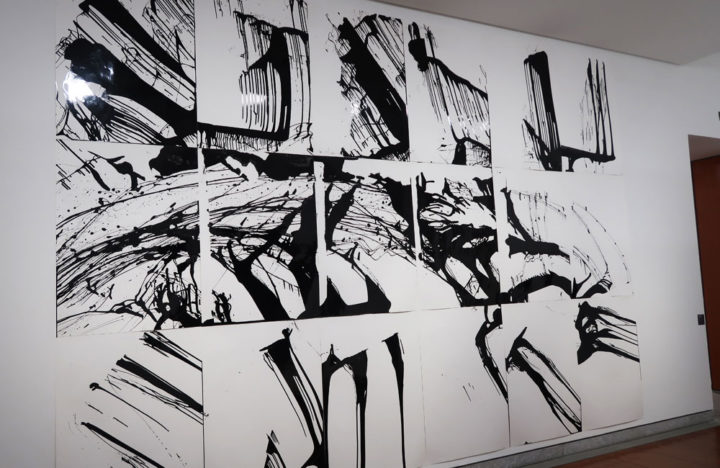
14-8/31-8 (1991)
He was an architect and a painter.
Christian Lhopital(1953-)
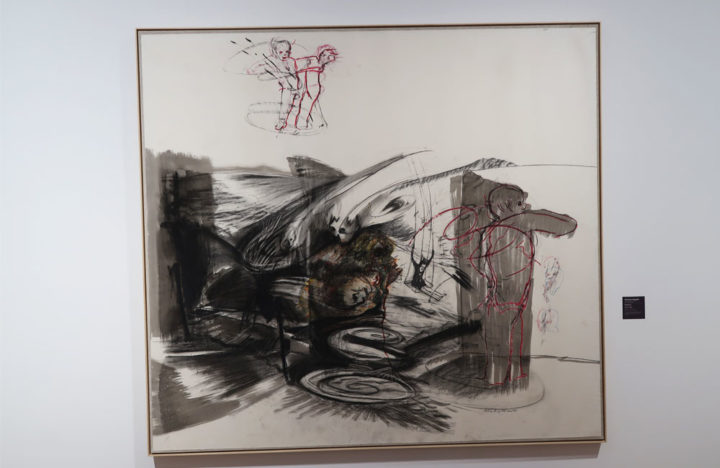
Danseurs (1985)
He is a contemporary artist born in Lyon.
Réfectoire Baroque
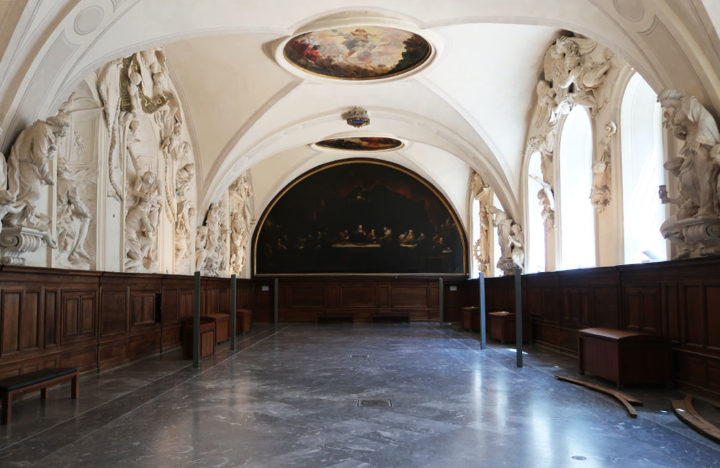
The Baroque Dining Room is located to the right of the entrance to the Musée de Lyon.
Unfortunately, the restoration work had not been completed at the time, so we were unable to go inside, but it is essentially a very impressive place to visit.
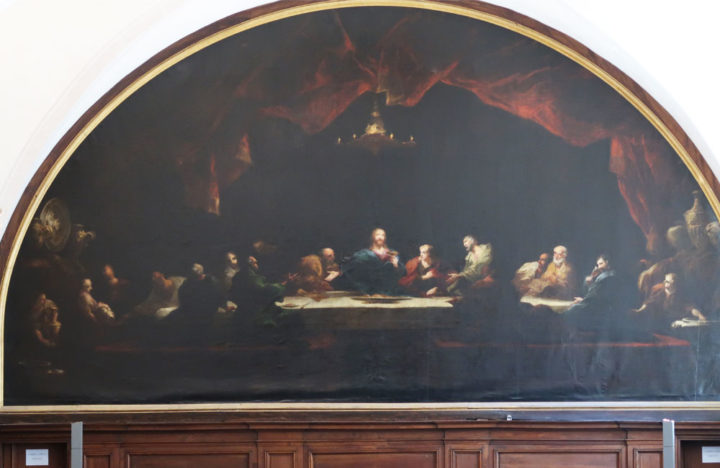
La Cène (1680-1690)
It is by Louis Cretey (1635-1702).
Born in Lyon, Cretey was influenced by his stay in Rome and left behind a variety of works.
The Last Supper is a sight to behold, so be sure to stop by.
Summary
The Musee de Lyon collection, which we have introduced in a total of three articles.
The museum was very impressive, from ancient to modern times.
We hope that this information will be of some help during your visit to the Musée de Lyon.
Please note that the works we have been able to introduce are only part of the collection.
Thank you again for reading to the end of this issue.
You can read more about the collections that we were unable to introduce in this article.

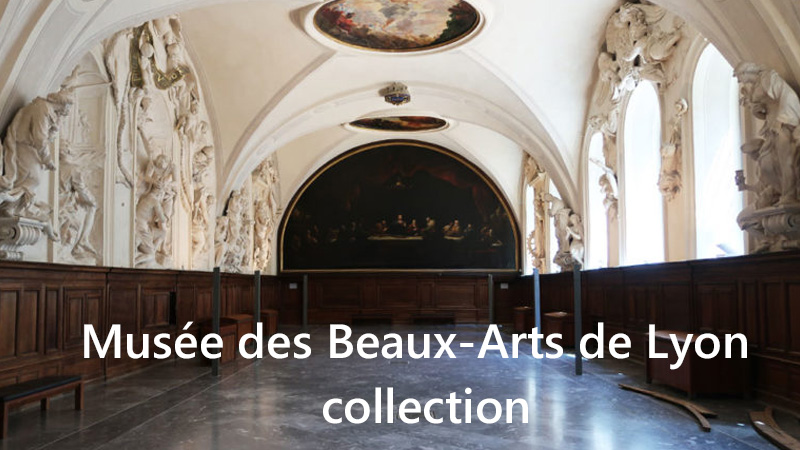
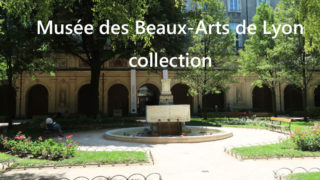
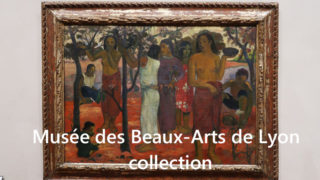


コメント